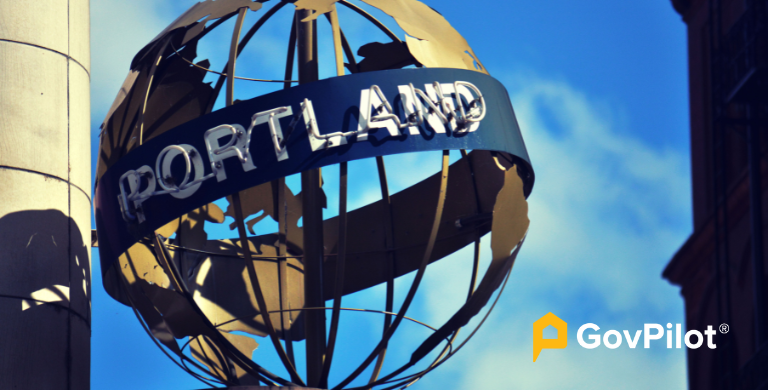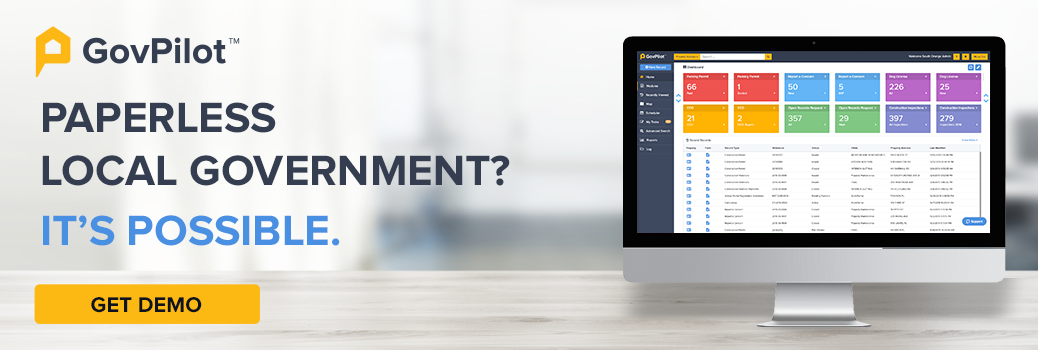Navigating the complex problems of local governance is no small feat. Doing this while also maintaining environmental integrity can become very complex. Local government officials shoulder large responsibilities, from budget restrictions to catering to the needs of their constituents, all while trying to stay green.
In the face of numerous different issues- economic pressure, infrastructure demands, and evolving policies- finding sustainable solutions can feel like trying to find a needle in a haystack. With that said, local government officials around the country continue to persist, driven by a commitment to leadership towards a green movement. This journey demonstrates the necessary steps needed to be made to become more environmentally conscious.
Portland, Oregon is looked at as a beacon of environmental stewardship and sustainability. Through their innovative initiatives and policies, they have in many ways set the gold standard for going green. With the support of a vibrant culture of environmental advocacy and community engagement, Portland continues to set an example for cities worldwide by putting sustainability at the top of their priority list.
The Problem Portland, Oregon Was Facing
Portland, Oregon, like many other cities across the country, faced significant environmental challenges. These challenges were magnified by high populations as well as inadequate efforts towards going green.
Despite its reputation as a progressive city, difficulties created by rapid urban growth as well as limited resources hindered the positive movement towards going green. Portland faced a problem that many major cities face: trying to strike a balance between environmental goals and the demands of a growing population. Efforts to overcome these hurdles continue to be a critical point for Portland, as lawmakers look to uphold their commitment to the environment, while also holding up a strong commitment to constituents.
Finding The Solution: 10 Ways Portland Became More Sustainable
Thanks to a steadfast approach by local government officials, Portland, Oregon, has emerged as a pioneer in urban sustainability, implementing numerous different initiatives with the goal of reducing their environmental footprint while also upkeeping the quality of life for their constituents.
Here is a list of 10 ways Portland became more sustainable:
1. Climate Management: Reducing Their Carbon Footprint
Portland has made notable strides in climate management thanks to some innovative strategies. One of these initiatives includes the adoption of energy efficient technologies such as LED traffic signals and street lights. This helps to not only lower overall energy consumption, but also contributes to the reduction of greenhouse gas emissions.
Additionally, Portland implemented a new method called the “Poop to Power” program. This interesting and innovative approach to energy efficiency looks to convert waste into energy, demonstrating a full commitment to creating alternative energy sources, while limiting overall environmental impact.
Read GovPilot’s guide on Reducing, Reusing, and Recycling Strategy in Local Government Offices for more information!
2. Energy Efficiency: Powering the City of Portland
The city of Portland has put a priority on energy efficiency as the cornerstone of its green efforts. By focusing on infrastructure development as well as practical solutions, energy efficiency has become a mainstay in the community.
Strategic investments like upgrading building codes and promoting green infrastructure, lawmakers looked to minimize energy consumption across residential, commercial, and municipal sectors alike. Things like retrofitting older buildings with energy efficient technologies such as solar panels, to placing a spotlight on sectors that are using green technology, Portland has made energy efficiency a part of their vibrant culture.
- GovTip: Learn Why San Francisco Was Voted No. 1 Overall on Clean Energy Survey to harness even more tips and inspiration from successful cities.
3. Harmful Pollutants: Protecting Health and Environment
One of the biggest threats to the environment currently is harmful pollutants. Addressing harmful pollutants was a key priority for Portland lawmakers. The city has implemented sweeping measures to limit these pollutants, focus on reducing emissions made by vehicles, industry, and even residential sources.
Strict air quality guidelines as well as the promotion of electric vehicles and public transit have been key players in the battle against these pollutants. Prioritizing pollution reduction and fostering community awareness, has helped Portland create a healthier and more sustainable city for its residents now and for future generations.
4. Stormwater Management: A Natural Approach
Nothing says innovative more than utilizing natural occurrences to benefit the environment. That is exactly what Portland has done with their stormwater management effort. Portland has managed and redirected 51% of stormwater to more useful purposes. By utilizing sustainable infrastructure such as bioswales, rain gardens, and permeable pavement, stormwater runoff is filtered and captured.
These natural systems help to reduce pollution entering bodies of water, replenish groundwater, and deter the impact of urban development on natural ecosystems. Portland has not only enhanced their water quality, but they have also promoted resilience to climate change byproducts such as increased rainfall and flooding.
Learn How Local Governments Should Manage, Maintain, & Protect Local Bodies of Water from our resource!
-
Natural Systems: Urban Ecosystem Integration
Portland was able to achieve sustainability by implementing green infrastructure such as green roofs, walls, and permeable pavements to manage stormwater and increase green spaces. Promoting urban biodiversity by expanding parks and green spaces also allowed for a more sustainable, active community.
Read our guide on Embracing Green Infrastructure in The Public Sector now!
-
Renewable Energy: Harnessing Nature's Power
In order to generate 100% renewable energy for Portland, a diverse mix of renewable energy is necessary. Whether it is solar power being harnessed by solar panels, or hydropower through dams and reservoirs, renewable energy efficiency is of utmost importance.
Supportive government policies, incentives, and subsidies all play an important role in fostering renewable energy adoption and furthering sustainable infrastructure development.
7. Water Use: Efficiency and Conservation
Portland has made notable strides in its improvement of water usage and water conservation. In fact, Portland has significantly reduced its municipal water use from approximately 550 million gallons down to around 300 million, when their green initiative began.
This achievement demonstrates a comprehensive approach to water management, which includes implementing advanced conservation technologies, promoting public awareness, and enhancing the efficiencies of water related infrastructure. By continuously focusing on these strategies, Portland has shown a clear focus on sustainable water practices.
Check out this resource on tips to build a robust Modern Local Government Water Utilities Strategy.
8. Responsible Waste Recovery and Management
Portland set their sights on recovering 91% of waste from public operations and disposing or recycling it properly. This monumental waste recovery movement improved the sustainability and environmental health in Portland as new systems were put in place for continuous waste management.
Read all about GovPilot’s Reducing, Reusing, and Recycling Strategy in Local Government Offices!
9. Fleet Emissions: Steering Towards Cleaner Transport
A modern and innovative solution to streamlining public transit while also reducing their carbon footprint: Portland began utilizing electric and fuel-efficient city transport vehicles throughout the community. Setting the example for constituents, and providing accessible and affordable e-charging stations for personal electric vehicles has inspired residents to make the change to more environmentally friendly transportation practices.
10. Sustainable Excavation Practices
Open trench excavation plays a huge role in Portland’s strategic initiatives for sustainable urban infrastructure. Open trench excavation, also known as cut excavation, is a traditional method of digging a trench to expose, repair, or replace underground utility lines. This method is used in Portland, especially in sewer construction and repair for replacing or upsizing existing sewer pipes.
This sustainable excavation practice is a method that other municipalities across the country could also implement to ensure their public infrastructure stays up to date and in working condition.
Taking Inspiration From Portland, Oregon
When charting your course: Consider how to achieve similar outcomes as Portland by assessing what areas of your community need to be more sustainable, making policy changes from the top town and getting constituents on board. Now is the time for your municipality to make similar changes and build policies like that of Portland. Local officials and government employees should book a consultation with GovPilot to learn more about how our experts can help your government become more streamlined and sustainable!
Environmentalism In Portland, Oregon FAQs
-
Why should municipalities take inspiration from Portland, Oregon?
Municipal governments no matter the size should look to seek inspiration from Portland due to the innovative ways that they have been able to achieve results in sustainability practices and environmentalism. Their methodology can be mimicked by other governments for similar results.
-
Why does an environmental footprint matter?
Our environmental footprint matters because it allows us to determine the sustainability of our community and the Earth's biocapacity. We should all be putting as much effort into living a lifestyle that is non-disruptive to the environment so that it can thrive.
Read on:
- Best Public Sector Software 2023: Ways Governments Use Technology to Save Time & Money
- Government Continuity Strategy 2023: Procedures During a Crisis
- AI in Government in 2023 and Beyond: Bringing Artificial Intelligence to Your Municipality
- What is Azure for Government? Everything to Know
- What is Municipal Software? Understanding Government Software for Municipalities & Counties
- 7 Government Cybersecurity Best Practices 2023: Keep Data Secure & Prevent Ransomware Attacks
- 13 Benefits of Digital Transformation for Local Government 2023









